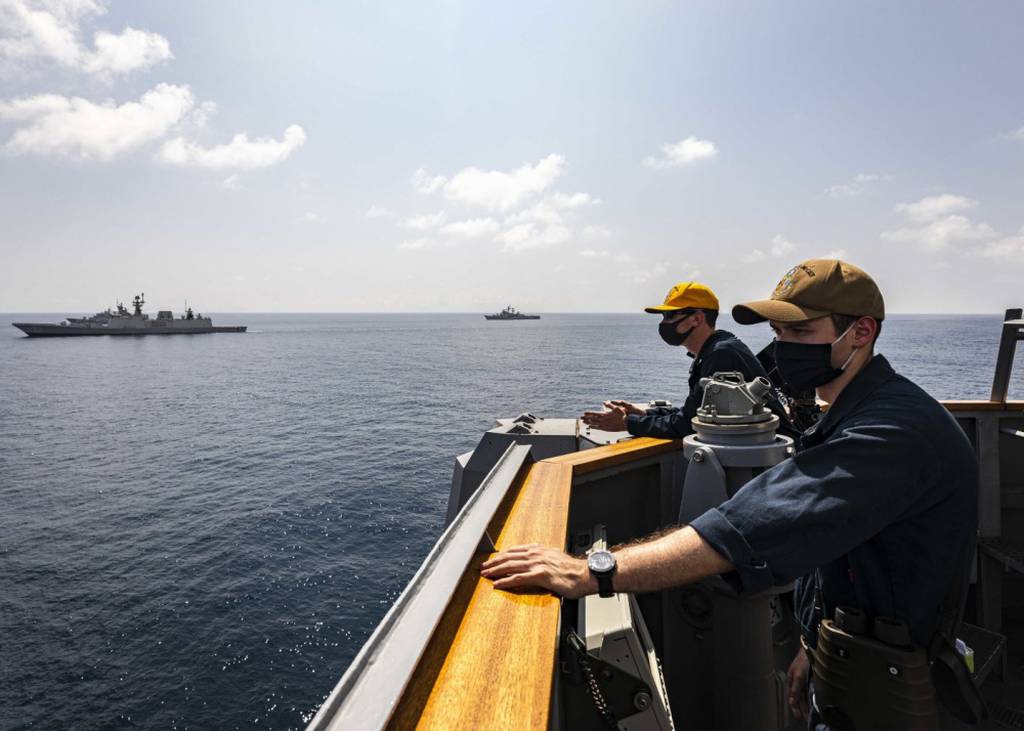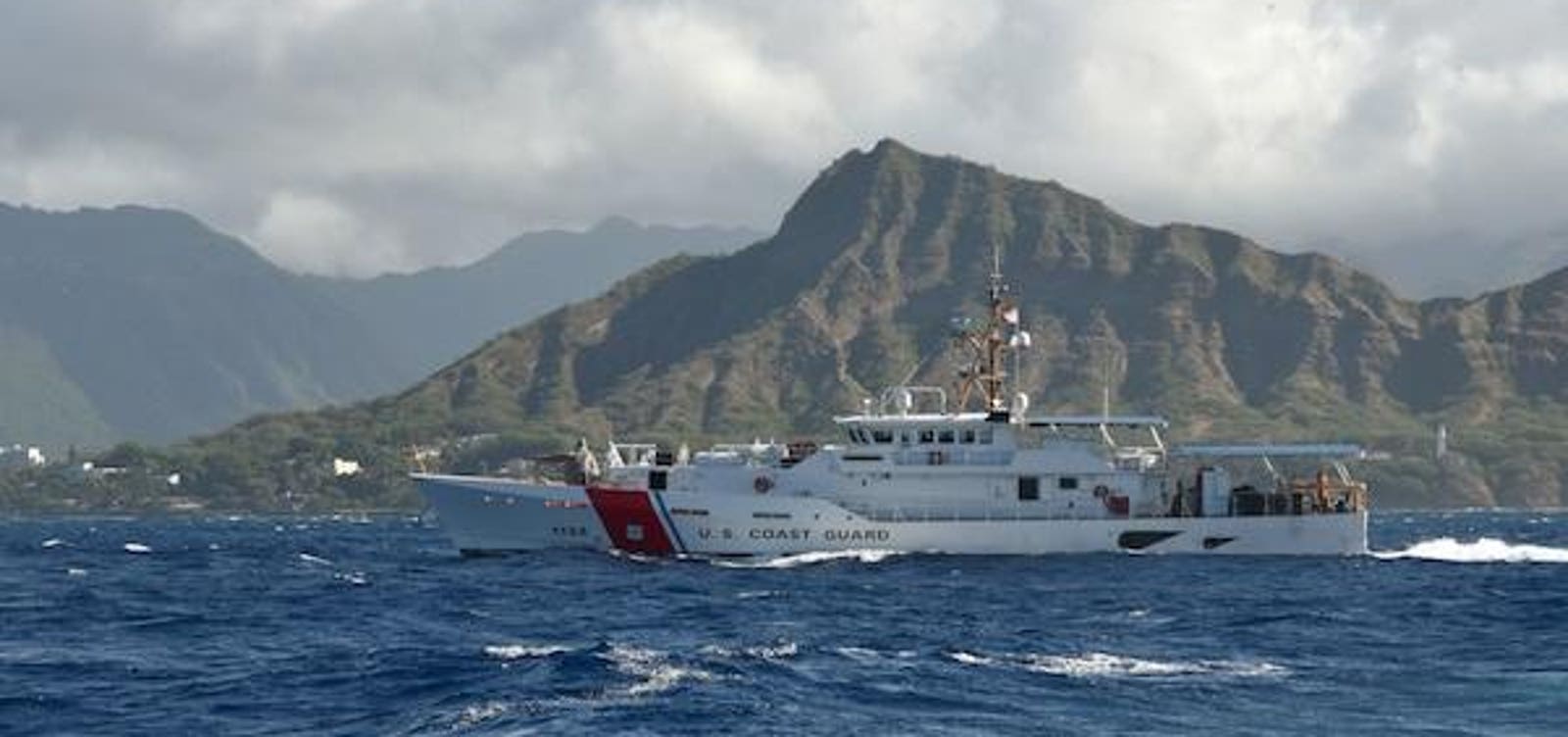From today's WSJ:
If War Comes, Will the U.S. Navy Be Prepared?
A new report details a culture of bureaucracy and risk-aversion that is corroding readiness.
Is the U.S. Navy ready for war? A new report prepared by Marine Lt. Gen. Robert Schmidle and Rear Adm. Mark Montgomery, both retired, for members of Congress paints a portrait of the Navy as an institution adrift.
The report, first reported by the Journal and commissioned by Sen. Tom Cotton, Reps. Mike Gallagher, Dan Crenshaw and Jim Banks, concludes that the surface Navy is not focused on preparing for war and is weathering a crisis in leadership and culture.
The impetus for the report was a series of recent catastrophes—a ship burning in San Diego last year; two destroyer collisions in the Pacific in 2017. Were these isolated events? Or did they indicate “larger institutional issues that are degrading the performance of the entire naval surface force”? The report surveyed active and recently retired service members of various ranks, conducting 77 candid hourlong interviews. A key finding: “Many sailors found their leadership distracted, captive to bureaucratic excess, and rewarded for the successful execution of administrative functions” rather than core competencies of war.
“I guarantee you every unit in the Navy is up to speed on their diversity training,” said one recently retired senior enlisted leader. “I’m sorry that I can’t say the same of their ship-handling training.”
Adm. Montgomery told me in an interview over the weekend that when he was a junior officer in the 1980s there was “an intense focus” on a likely confrontation with the Soviet navy—learning about classes of ships or the missiles aboard. After decades without a peer adversary at sea, “the same focus is not permeating the Navy today.”
The Navy has improved its pipeline for surface-warfare officers since the 2017 collisions, reversing a 2003 money-saving mistake of training junior officers by giving them 23 compact discs loaded with reading material. But the Navy doesn’t spend the money and time training surface warfare officers that it does submariners or aviators, and has revamped training so many times, usually in an effort to spend even less money, that commanding officers are left with “inconsistent, often ill-prepared wardrooms.”
Navy Midshipmen salute at the Naval Academy Graduation and Commissioning Ceremony in Annapolis, Md., May 28.
PHOTO: KEVIN DIETSCH/GETTY IMAGES
Civilian Pentagon appointees of both parties have been poor stewards of the surface Navy’s capabilities. The report estimates that 20 ships a year are extended on deployment, and keeping them at sea creates “a host of problems.” The ship is late to postdeployment maintenance, which can mess up the yard’s schedule for work on other ships. Longer deployments tend to mean more repairs, and delays can cut into training time.
The report also details a deep culture of risk aversion: If the missiles start flying, will a destroyer captain be ready to make quick decisions and take calculated risks, even if his communications are jammed and he can’t reach his superiors?
Historically, ship captains couldn’t reach the higher-ups while at sea and had to make decisions on their own. The price of absolute authority was “the cruel business of accountability,” as a 1952 editorial in this newspaper called it. Now admirals can micromanage “from the comfort of terrestrial headquarters,” as the report puts it. A ship captain quoted in the report recalled his experience of escorting ships through the Strait of Hormuz. “Every single time I knew in the back of my head” that admirals “were literally watching the cameras on my ship second-guessing every single thing I did.”
Commanders have less authority but brutal accountability. In the report, sailors expressed “near universal disdain” for a “one mistake Navy” that defenestrates leaders who make an error. It’s a “drag on retention, lethality and morale.” Former Navy Secretary John Lehman ticks off in the report the five-star admirals who won World War II and their mistakes: Bill Halsey “was constantly getting in trouble for bending the rules or drinking too much”; Chester Nimitz “put his first command on the rocks”; Ernie King was “a womanizer.” They were punished at times, but Navy leadership always realized “these were very, very promising” officers. None, he concludes, could have made it past captain in today’s Navy.
Note also an illustration that captured this mentality in practice
from a recent piece in Proceedings magazine. During an overseas exercise (the article doesn’t say when), a U.S. destroyer and a British frigate “traded some paint,” a minor run-in. “The next day at a gunnery exercise, the British ship was on the gun line, and the U.S. ship was headed to port to embark the investigation team.”
Then there is the unhealthy fear of bad publicity. After negative news stories, the report found, “the senior ranks are perceived as quick to sacrifice junior personnel” to save their own tails. Discipline is “bent to the unsteady whims of public perception, not the Navy’s own standards and regulations.”
A command master chief told sailors to “clap like we’re at a strip club” when Vice President
Mike Pence came aboard the carrier. He resigned, his 30-year career ending after one misjudgment. Admirals “hide in foxholes at the first sight of Military.com and the Military Times,” said one intelligence officer.
China will be the big topic when Carlos Del Toro, President Biden’s nominee for Navy secretary, appears before the Senate Armed Services Committee on Tuesday. Perhaps Mr. Del Toro, a former destroyer captain, can shake the Navy awake. As the new report notes in closing, there isn’t much time for learning once war is under way.
Mrs. Odell is an editorial writer for the Journal.


